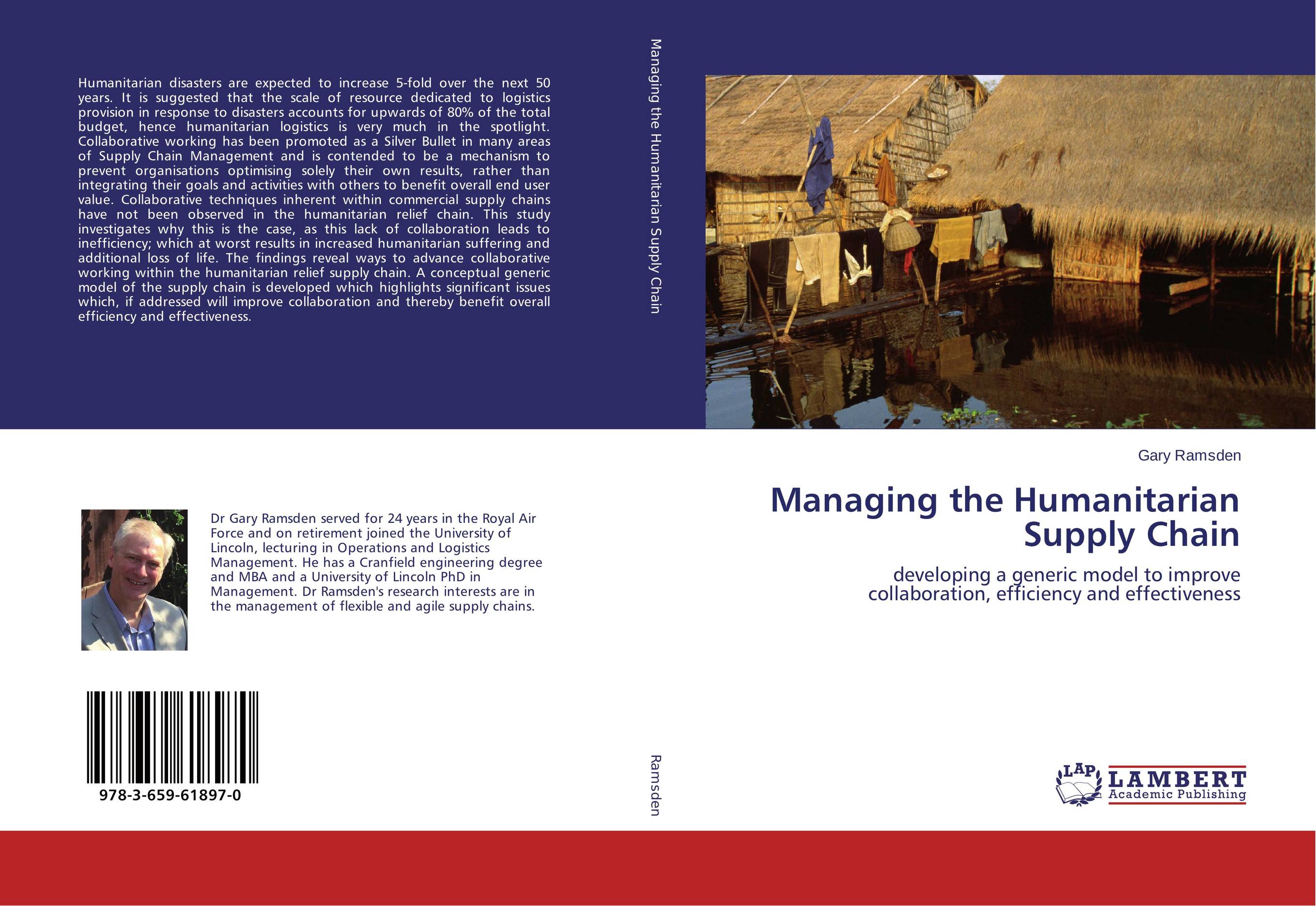| Поиск по каталогу |
|
(строгое соответствие)
|
- Профессиональная
- Научно-популярная
- Художественная
- Публицистика
- Детская
- Искусство
- Хобби, семья, дом
- Спорт
- Путеводители
- Блокноты, тетради, открытки
Managing the Humanitarian Supply Chain. Developing a generic model to improve collaboration, efficiency and effectiveness

В наличии
| Местонахождение: Алматы | Состояние экземпляра: новый |

Бумажная
версия
версия
Автор: Gary Ramsden
ISBN: 9783659618970
Год издания: 2015
Формат книги: 60×90/16 (145×215 мм)
Количество страниц: 400
Издательство: LAP LAMBERT Academic Publishing
Цена: 61421 тг
Положить в корзину
Позиции в рубрикаторе
Сферы деятельности:Код товара: 151687
| Способы доставки в город Алматы * комплектация (срок до отгрузки) не более 2 рабочих дней |
| Самовывоз из города Алматы (пункты самовывоза партнёра CDEK) |
| Курьерская доставка CDEK из города Москва |
| Доставка Почтой России из города Москва |
Аннотация: Humanitarian disasters are expected to increase 5-fold over the next 50 years. It is suggested that the scale of resource dedicated to logistics provision in response to disasters accounts for upwards of 80% of the total budget, hence humanitarian logistics is very much in the spotlight. Collaborative working has been promoted as a Silver Bullet in many areas of Supply Chain Management and is contended to be a mechanism to prevent organisations optimising solely their own results, rather than integrating their goals and activities with others to benefit overall end user value. Collaborative techniques inherent within commercial supply chains have not been observed in the humanitarian relief chain. This study investigates why this is the case, as this lack of collaboration leads to inefficiency; which at worst results in increased humanitarian suffering and additional loss of life. The findings reveal ways to advance collaborative working within the humanitarian relief supply chain. A conceptual generic model of the supply chain is developed which highlights significant issues which, if addressed will improve collaboration and thereby benefit overall efficiency and effectiveness.
Ключевые слова: Agile, Collaboration, Disaster Relief, flexible, humanitarian, Logistics Management, Supply Chain Management



